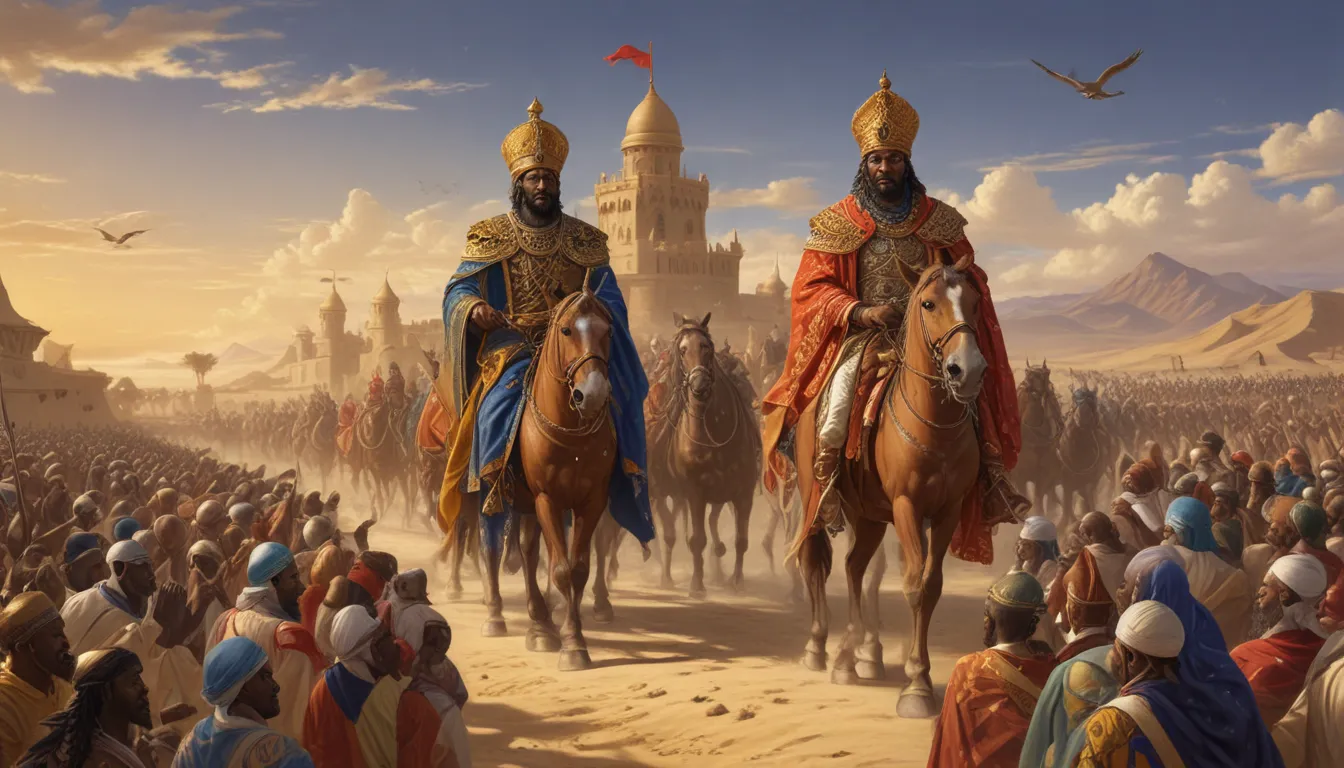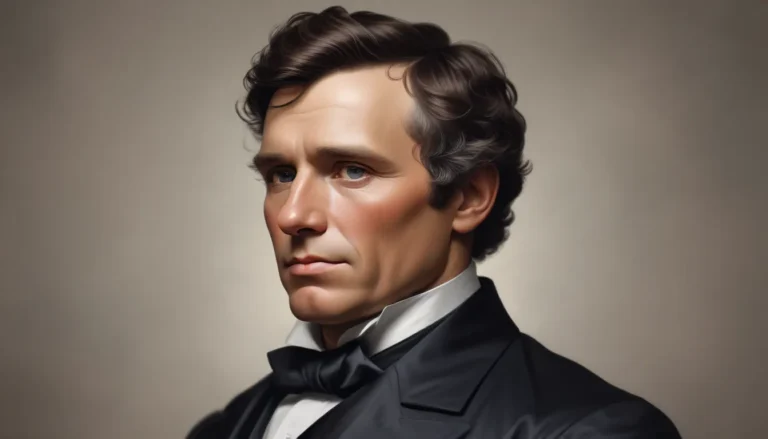The images in our articles may not match the content exactly. They are used to grab your attention, not to show the exact details in the text. The images complement the text but do not replace it.
Mansa Musa, the legendary ruler of the Mali Empire in the 14th century, was not just a wealthy monarch but a significant historical figure whose impact continues to resonate today. From his immense riches to his cultural and educational contributions, Mansa Musa’s life is filled with astonishing facts that shed light on his unparalleled legacy. Join us as we delve into 13 unbelievable facts about Mansa Musa, exploring his wealth, influence, and lasting impact on Africa and the world.
The Wealth of Mansa Musa
With a net worth of over $400 billion, Mansa Musa stands as the wealthiest individual in history, a title that speaks to the vast resources at his disposal. His wealth was largely derived from the Mali Empire’s gold reserves, making him a figure of immense influence in the global economy.
The Gold of Mali
Mansa Musa’s control of the Mali Empire, known for its abundance of gold mines, allowed him to amass his incredible fortune. Through extensive trade networks that spanned Africa, Europe, and the Middle East, he solidified the empire’s position as a leading producer of gold, further enhancing his wealth and power.
The Legendary Pilgrimage
In 1324, Mansa Musa embarked on a legendary pilgrimage to Mecca, known as the Hajj. Accompanied by a caravan of 60,000 people, including soldiers, merchants, and slaves, he displayed his wealth in a grandiose fashion that left a lasting impression on the regions he passed through. His generosity, marked by the distribution of gold and gifts, disrupted local economies and showcased the opulence of the Mali Empire.
Magnificent Structures and Educational Initiatives
Mansa Musa’s legacy extends beyond his wealth to encompass his cultural and educational contributions. He commissioned the construction of impressive architectural marvels, such as the Djinguereber Mosque in Timbuktu, and established educational centers and libraries that transformed the city into a hub of learning and intellectual pursuit.
The Sophistication of the Mali Empire
Under Mansa Musa’s rule, the Mali Empire flourished, characterized by advanced governmental and economic systems. Efficient tax collection methods, a well-organized bureaucracy, and a thriving agricultural sector were hallmarks of his reign, contributing to the empire’s prosperity and stability.
The Cultural Renaissance
Mansa Musa’s support for the arts and culture led to a cultural renaissance within the Mali Empire. The arts, music, and literature thrived under his patronage, making Timbuktu a center of artistic and intellectual endeavors that inspired generations to come.
Expansion and Influence
Through military campaigns, Mansa Musa expanded the territorial boundaries of the Mali Empire, encompassing regions that included present-day Mali, Senegal, Gambia, Niger, Nigeria, and parts of Mauritania. His influence extended far beyond the borders of his empire, putting Mali on the global map.
Impact on Egypt and Timbuktu
Mansa Musa’s pilgrimage to Mecca not only showcased the wealth of the Mali Empire but also had significant economic repercussions. His lavish spending in Cairo caused inflation and had lasting effects on the Egyptian economy. Additionally, his efforts to establish Timbuktu as a center of education and learning elevated the city to a renowned seat of intellectual pursuit.
Legacy and Inspiration
Mansa Musa’s reign marked a golden era for the Mali Empire, characterized by political stability, economic prosperity, and cultural flourishing. His legacy continues to inspire generations with his remarkable journey, immense wealth, and contributions to art, culture, and education that have left an indelible mark on history.
Conclusion
In conclusion, Mansa Musa’s life is a testament to the power of leadership, philanthropy, and cultural exchange. His astonishing wealth and generosity, coupled with his dedication to education and the arts, make him a figure of extraordinary significance in history. Mansa Musa’s story serves as a reminder of the potential for greatness that lies within each of us, inspiring us to strive for excellence and make a lasting impact on the world.
FAQs
- Who was Mansa Musa?
-
Mansa Musa was a 14th-century emperor of the Mali Empire in West Africa.
-
How did Mansa Musa become so wealthy?
-
Mansa Musa’s wealth was primarily derived from the vast resources and abundant gold mines within the Mali Empire.
-
What is Mansa Musa’s most famous accomplishment?
-
Mansa Musa’s most famous accomplishment was his Hajj pilgrimage to Mecca, during which he distributed enormous amounts of gold and established diplomatic relations with other nations.
-
How did Mansa Musa’s pilgrimage impact the Mali Empire?
-
Mansa Musa’s pilgrimage brought attention to the wealth and splendor of the Mali Empire, establishing it as a powerful and influential kingdom in the eyes of other nations.
-
What is the legacy of Mansa Musa?
- Mansa Musa’s legacy is one of immense wealth, cultural exchange, and philanthropy. He is remembered as one of the wealthiest individuals in history and for his significant contributions to the Mali Empire.
Explore more captivating historical figures and events by browsing our extensive collection of articles. From brilliant scholars like Ibn Khaldun to powerful rulers like Ezana of Axum, there is a wealth of knowledge waiting to be discovered. Trust in our commitment to delivering engaging and credible content as you embark on a journey through history and culture.






